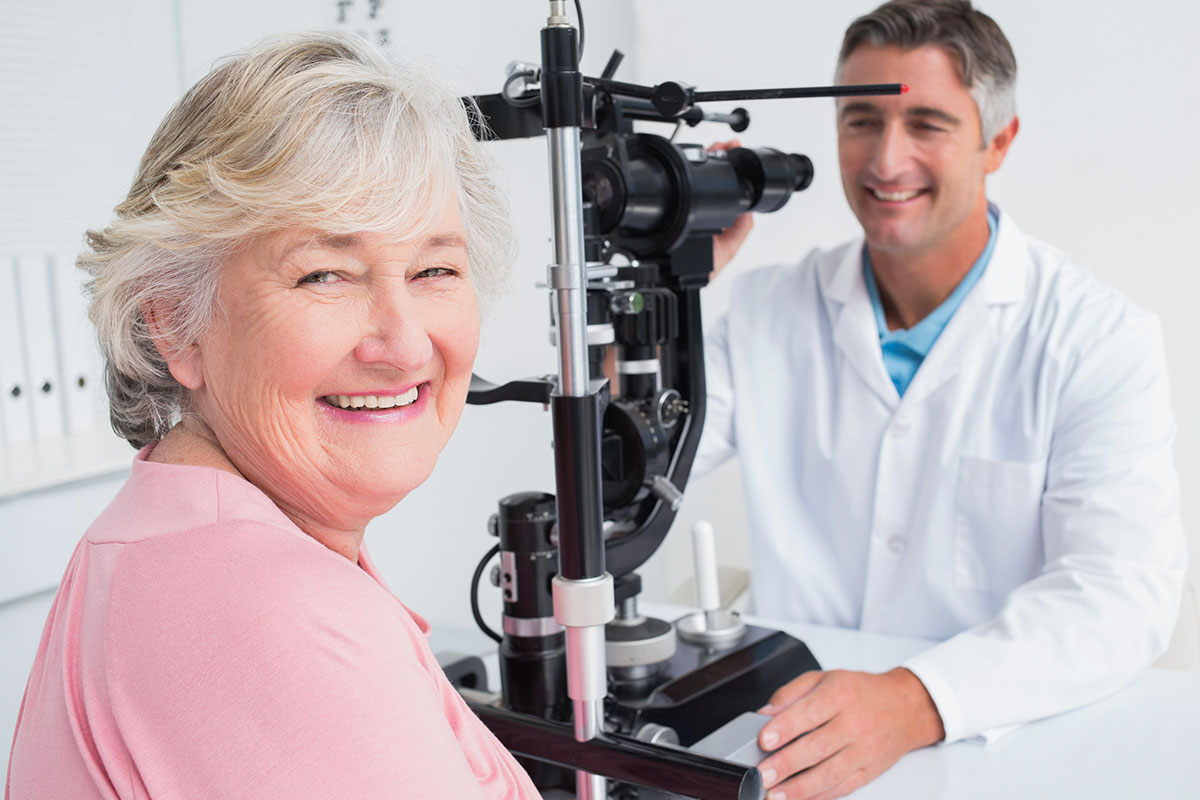Diabetes is a serious condition that affects your entire body — and that includes your eyes. Patients with diabetes have a significantly higher risk of several eye conditions, such as cataracts, glaucoma, and diabetic retinopathy. Patients with type 1 or type 2 diabetes have a particularly high risk of diabetic retinopathy, a condition that can eventually lead to the complete loss of vision. If you have diabetes, you must undergo regular diabetic eye exams to identify eye conditions at the earliest stage possible.
The Importance of Regular Diabetic Eye Exams

Proactive Diabetic
Eye Care
The best way to handle eye conditions related to diabetes is through early diagnosis. According to the American Diabetes Association (ADA), individuals with type 1 diabetes should have their eye exams within five years after diagnosis, and individuals with type 2 diabetes should start having regular eye exams immediately after diagnosis. Type 2 diabetes often goes undiagnosed for years, so it’s possible you already have retinopathy and other eye conditions by the time you receive a diagnosis.
If you are diagnosed with diabetes, you should undergo eye exams once every year or possibly more ofter depending on findings. During your diabetic eye exams, your ophthalmologist must perform thorough retina imaging, and other diagnostic tests to identify potential eye conditions at the earliest stage possible, i.e., before the eye condition affects your vision or overall ocular health. If you have diabetic retinopathy or other conditions, you may need several eye exams per year to monitor and or treat ocular findings and complications from diabetes.
Eye Conditions Related to Diabetes
Diabetic Retinopathy
Diabetic retinopathy is a condition that damages the blood vessels in the retina (the light-sensitive area in the back of the eye). When the retina is damaged, your vision starts becoming blurry and distorted, and you may eventually lose eyesight completely. Common symptoms of diabetic retinopathy include multiple small floaters (dusty vision), blurry vision, difficulty focusing, altered color vision, partial or total vision loss, and fluctuating vision.
Glaucoma
Glaucoma is a group of eye diseases that damage the optic nerves that transmit visual signals to the brain, thereby negatively affecting your vision. Glaucoma usually occurs when an abnormally high pressure within the eyes damages the optic nerve and retina, leading to partial or complete blindness. Diabetes increases the risk of glaucoma because it can damage the outflow channels of your eye resulting in an elevation of pressure in your eyes. That’s why you need regular diabetic eye exams.
Cataracts
Diabetes leads to high blood sugar levels, which can structurally change the lens of the eye and accelerate the development of cataracts. You develop cataracts when the proteins and fibers in the lens of your eyes break down and clump together, thereby obstructing your vision. Individuals with cataracts experience blurry and discolored vision, sort of like looking through foggy lenses. If you have diabetes, you must go for regular eye exams to catch cataracts at the earliest stage possible.
Your Diabetic Eye
Exams Experience
When you visit our ophthalmologists for your diabetic eye exams, you can expect a thorough discussion of your symptoms, medical history, and family history. The eye doctor will ask you to read an eye chart and examine the retina of your eyes using an ophthalmoscope. The eye doctor may also administer eyedrops to dilate your pupils and view the internal structure of the retina with a special instrument known as a slit lamp. The eye doctor will also perform additional tests for glaucoma, cataracts, and other diabetes-related eye conditions.

Schedule an Appointment
Medical Surgical Eye Institute is a premier eye care center that takes a comprehensive and holistic approach to ocular health. Instead of simply treating eye conditions when they affect your vision, we proactively identify eye conditions before they cause major problems. If you are diagnosed with type 1 or type 2 diabetes, we encourage you to schedule regular diabetic eye exams to maintain optimal ocular health for a lifetime.

